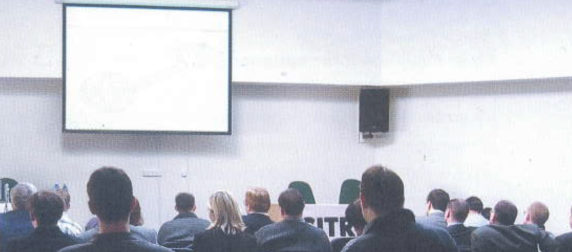Posted:
Juni 13th, 2018
Comments: 0

„Sustainable Regional Development: Renewable Energy and Green Technologies „August 20, 2018 – September 8, 2018 Don State Technical University (DSTU), Rostov-on-Don
Bei Interesse durch Studierende der TU Wien werden wir die Anzahl der anrechenbaren ECTS klären.Bitte diesbezüglich Kontakt zu Prof. Wiegand aufnehmen.
The DSTU International Summer School opening is scheduled on Monday morning, August 20 at the DSTU Academic Council Hall, expecting to be attended by Ms. Shvedova – DSTU Vice Rector (International), Ms. Morozova – Director of the State Autonomous Institution of the Rostov Region „Regional Research and Design Institute of Urban Development“, Ms. Markaryan – Head of DSTU Academic Mobility Department, Mr. Verzhbovskiy – Dean of the Faculty of Industrial and Civil Engineering, Ms. Sheina – Head of Urban Development Department, Mr. Tikhomirov – Head of the Department of Heat and Gas Supply and Ventilation, Ms. Kravchenko – Associate Professor of the Department of Engineering Mechanics.
Students from international educational institutions – DSTU partners from Great Britain (Glasgow Kelvin College, University of the West of Scotland,), Northern Ireland (South West College) and Austria (Vienna University of Technology, Vienna University of Applied Sciences) are invited to participate in the school-seminar.
During the 3-week programme, DSTU students together with international students from the UK and Austria are supposed to develop a project for reconstructing the educational building of DSTU using the newest technologies of building information modeling, energy saving, renewable energy sources in order to achieve sustainable building performance indicators.
Depending on the Summer School participants’ specialism, the solutions to the following challenges are expected to be developed:
– creation of an information model of the educational building using BIM,
-development of architectural concepts for the reconstruction of the building, taking into account population groups with restricted mobility;
– development of a concept and project for creating open spaces for teaching and conducting practical classes;
– development of measures for the use of modern building technologies, structures and materials in the reconstruction of the facility;
– development of measures for the use of modern building materials and technologies in the interior design of the educational building;
– calculation of energy consumption of the building before reconstruction with the development of an energy performance passport based on the survey results;
– development of solutions for engineering systems (heating, ventilation, air conditioning) of the educational building with reduced energy consumption and secondary energy use;
– selection of renewable energy sources to create a demonstration center for their use on the premises of the DSTU educational building, with calculation of the efficiency of their use;
– development of measures aimed at creating and improving environmental protection facilities, including treatment of municipal solid waste;
– calculation of technical and economic indicators of the DSTU educational building reconstruction, including data on the amount of required investments and payback periods.
The preparation of the International Student’s Summer School is carried out under the guidance of Professor Svetlana Sheina, Doctor of Technical Sciences, Head of Urban Development Department, with the participation of Sergei Tikhomirov, Ph.D., Associate Professor, Head of the Department of Heat and Gas Supply and Ventilation, Galina Kravchenko, PhD, Associate Professor of the Department of Engineering Mechanics; Liudmila Glebova, Leading Expert, DSTU Academic Mobility Department.
During the International Student’s Summer School, it is scheduled to visit the Institute of Urban Development at the Administration of the Rostov Region, make site visits to four large construction sites, meeting with representatives of construction companies; participate in practical classes on the topic of the seminar, as well as to be involved in extensive cultural programme including tours around the cities of Rostov-on-Don, Azov, Novocherkassk and the Don Cossack village of Starocherkasskaya, getting familiar with life and traditions of the Cossacks and other nationalities inhabiting the Don Land.